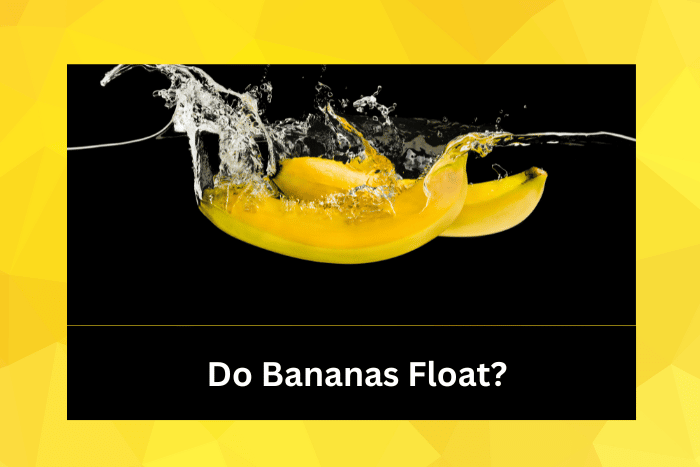Have you ever wondered, do bananas float?
I’m sure it’s a question that’s been playing on your mind for a while.
Then again, you could always test this out for yourself.
But, let’s face facts, we live in a world where a quick internet search will reveal all.
And now you’ve found your way here. I won’t disappoint.
So, let’s get to the banana sink-or-swim conundrum.
Yes, bananas do float because they are less dense than water. This is a general rule of buoyancy, and the density of any object will impact its ability to sink or swim. Bananas may typically appear to sink in freshwater before they rise back up to the surface. However, they will easily float in seawater due to the additional salinity and density.
1. Is It All About Density?
Whether an object floats or sinks is all down to density.
Basically, if an object is less dense than water, it will float, and conversely, if it is denser than water, it will sink.
And it just so happens that bananas are less dense than water.
With that being said, this is actually quite difficult to ascertain in smaller quantities.
By this, I mean that if you were to look up the density of bananas and water separately, you would be greeted with the stats that they’re both about 1g/cm³.
So, you wouldn’t really know either way.
If they’re both the same density, then would this mean that a banana floats or not?
Oh, by the way, yes, if an object is the same density as the water, it is likely it will float.
This is due to the hydrogen bonds causing surface tension in the water.
Anyway, back to the point – bananas and flotation.
When we check the figures for density per kg/m³, all is revealed.
Bananas have a density of 940.09kg/m³.
Whereas water has a density of 997kg/m³.
So, this clearly proves that a banana is less dense than water and will therefore float.
Hooray!
However, does the type of water make a difference?
Let’s find out.
2. Freshwater vs. Seawater: Does It Matter?
As you probably know, not all water was created equal.
We, of course, have fresh water, and then we have seawater (and let’s not get into chlorine-filled swimming pools for now).
Freshwater will maintain the same density and is, therefore, 997kg/m³.
However, seawater has a density of 1026kg/m³, so it is more dense than freshwater.
This, of course, means that an object that floats in freshwater will have a far easier time floating in seawater.
I’m sure you’re fully aware of this yourself.
In fact, due the higher the salinity content of seawater, the easier it is to float.
This is also why the Dead Sea is famous for its ability to help anyone float.
It just so happens that the Dead Sea has a salt concentration of 34%.
Compare this to your “average” seawater, which has a salt concentration of 3.5%.
This also means that if you ever throw a banana into freshwater, you’ll initially notice that it sinks before floating back up to the surface.
This is simply because they are both so close to each other in density.

3. Can We Blame Life of Pi?
I guess the banana-floating question first came to light due to Life of Pi.
More specifically, the orangutan sitting on a pile of bananas that float.
Now, we obviously have to remember this was just a movie.
Plus, I’m not sure a 180lb orangutan sitting on the bananas would increase their ability to float.
But now you know, without an orangutan, bananas definitely float.
Life of Pi: Do Bananas Float?
Final Thoughts
So, as you can see, bananas clearly do float.
As with any object, this all comes down to density.
And as bananas are less dense than water, they are able to float.
Plus, once again, as with most objects, this ability to float is enhanced in seawater.
If all this talk of orangutans has sparked your interest in other animals, why not find out if monkeys really eat bananas?
